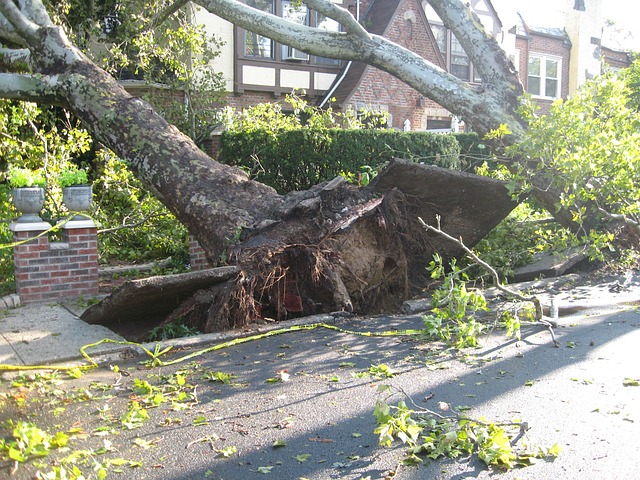
Attack of the Flying Trees
As we head into the stormy spring season, we approach a wonderful time of insurance questions such as, “I have water in my basement, is it covered?” —see this recent post for a partial answer!–and one of my personal favorites: “My tree fell on my neighbor’s house. Is that covered?” or the converse conundrum: “My NEIGHBOR’S tree fell on my house. Will HIS insurance cover it?”
This question has tripped up more than a few novice insurance agents. Anyone with an insurance license (and most people without one) know that a homeowners policy includes liability coverage to protect the homeowner from claims of others alleging their negligence. The most frequent claims in our office are from a kid hitting a baseball or shooting a basketball through someone’s window and from policyholders whose dogs run out into the street and get hit by a car. (The damage caused to the vehicle is covered as a liability claim).
Because of this notion of liability, most homeowners insurance policyholders assume that when an ice or wind storm brings one of their trees down on a neighbor’s fence or garage, the homeowners policy for their own property where the tree came from will respond with a liability claim. But this doesn’t mesh with the actual purpose of liability insurance, which is only intended to compensate a party to whom you owe liability.
Are you liable for a tree being blown over? One test is whether you have any control over the situation. When you are hitting a baseball (or parenting a kid who does) there is some obligation to play in an area NOT surrounded by plate glass. When you own a dog, there is an assumed responsibility to keep it out of public roadways. Similarly, when you operate a vehicle it is expected that you will not crash it into another party. In all of these cases one exercises some level of control over their actions. The problem that this poses in the tree scenario above, is that the cause of the damage was the wind, or ice, or whatever circumstance brought the tree down. Needless to say, there is not a homeowners insurance consumer out there who can control the wind or weather, hence, a 3rd party cannot hold that person responsible for a windstorm bringing down a tree onto their property and they must instead seek indemnification from their OWN insurance policy.
But there’s a caveat. Remember the control issue? There are SOME circumstances in which the homeowner can still be negligent and a liability claim may still be brought. Consider a scenario in which a sickly tree dies and is slowly decaying while hanging over a property line. The imperiled neighbor may warn the owner and ask him to remove it. If the tree owner is aware of the peril and does nothing he may, in fact, have exhibited some negligence for which his insurance company will duly step forward.
For more information on trees and insurance check out this site from the Insurance Information Institute, or call your local Independent Insurance agency. I can think of a good one!
